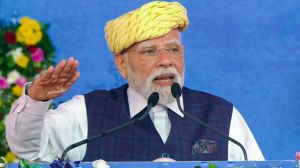Finally, DRDO picks up stress blip on Army radar
After conducting counter-terrorism operations for more than a decade in Jammu and Kashmir, the Army is brushing up its stress-management man...

After conducting counter-terrorism operations for more than a decade in Jammu and Kashmir, the Army is brushing up its stress-management manuals and techniques. As part of it, the DRDO’s Psychological Research Laboratory has listed warning signals for commanding officers to look out for in their units.
The two DRDO manuals also list measures to deal with such cases. The manuals were prepared after psychologists from the Army Medical Corps and DRDO’s behavioural scientists went through hundreds of cases and prepared profiles of soldiers who suffered from depression after prolonged deployment in counter-insurgency duties.
Such depression can be detected, for instance, if a soldier is writing home more than he usually does or is visiting the unit’s places of worship more often. These are some signs that officers have been asked to look out for to ensure that stress-related suicides or fratricides don’t occur. Over the years, there have been cases when soldiers either attacked their colleagues or senior officers — in some cases wounding them fatally. The Army has also suggested that commanding officers adopt a more ‘‘participatory approach’’ to prevent suicide or fratricide.
In November 2003, a Rashtriya Rifles jawan allegedly killed his colleagues using his service weapon. All three were stationed at a remote post which was part of the Doda-based Delta Force.
Also in the list of behavioural patterns to watch out for are signs of introvert behaviour. Sources said any soldier who is avoiding company and spends too much time in the bunker should also be watched. The Army has also recently introduced regular yoga sessions and counselling to beat stress in such operations. It has also decided to ensure that its men are not deployed in high-stress postings for too long.
Photos



- 01
- 02
- 03
- 04
- 05




























